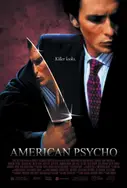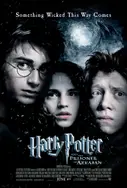books
Books like The Eye of the World
The Eye of the World
The first series that showed it was possible to do an uninspired rewrite of Tolkien and make a mint was Shannara. After that the doors were flung wide, and the next to profit off the scheme was was Robert Jordan. Of course, I'm not suggesting it's bad to take inspiration from older authors--all authors do this, as Virgil did from Homer, and Milton from Virgil, and Byron from Milton. Tolkien himself drew on the Norse Eddas, Welsh myths, English fairy tales, and Blake's myth-making.But when a skilled author takes inspiration, they expand and change what came before, combining many influences to produce their own unique voice and vision. Jordan didn't have the knowledge of language, history, or culture to truly copy Tolkien's style, nor was he able to add a unique spin.The Eye of The World is a more accessible version of Tolkien, but Tolkien is already a simplified version of the Norse Sagas, meaning that Jordan felt a need to dumb-down the accessible, which doesn't leave his book with much personality.Jordan also takes influence from the Sword & Sorcery tradition, particularly R.E. Howard (Jordan even wrote and published some of his own Conan stories). However, unlike other authors of rollicking adventure Fantasy, like Leiber or Charles Saunders, Jordan kept Tolkien's plodding length. It is difficult to comprehend how an author could take such a simple, familiar story and stretch it out over so many pages.The hero is an orphan who looks different, he gets his father's magic sword, he goes on a quest with an old, wily mentor, gets attacked by evil (dark-skinned) mongoloids from the mysterious East, meets the princess by accident, becomes embroiled in an ancient prophecy, discovers a magic 'force' which controls fate (and the plot), &c., &c. Stop me if you've heard this one before. Like a lot of modern fantasy, the plot and characters are nothing new. If you've seen Star Wars, then you know it by heart. Every fantasy fan has read this same story again and again from countless authors--some, apparently on purpose. Of course, when this old story is told well, with slick pacing and vivid characters, we can forgive the cliches, or even enjoy them freshly, recognizing their universal appeal. But when an author is simply trotting out an old, tired story and doing nothing to make it shine anew, then the only appeal it can lay claim to is bland nostalgia.There's no reason for this sort of repetition: a new book should be more than just fanfic of an older, financially successful book. There are countless different influences out there, long before Tolkien or Howard ever touched pen to paper (many of which can be found in the link at the end of this review), so it's disappointing to see authors continually rehashing the same tedious cliches completely unchanged half a century later.Jordan's long-winded style can't even boast the wealth of meticulous details with which Tolkien filled his pages (often to the detriment of his story). It's clear that Jordan's trying to build a one of those massively detailed worlds so prevalent in pop fantasy, but it's not an interesting, original world--it's just another generic, pseudo-Medieval Europe without any of the genuinely interesting bits that made that time period unique. It's just modern characters with modern psychology swinging around magic swords in a Disneyland version of history.It might not be so bad if the lengthy asides were actually interesting, in and of themselves. If each little piece was amusing in its own right, we might forgive. If they gave us some odd bit of defamiliarization that caused us to look at our own, modern world in a new way, that would be something. Instead, we get dry, lengthy explanations of extraneous facts that we had no reason to be curious about in the first place.Some readers have pointed out that these facts show up in later books of the series, which is probably true, but then, what are they doing in this book? If Mary doesn't appear until book three, it is not useful or interesting to stop in the middle of book one and tell us she has blonde hair. Facts should not be evenly distributed throughout a series, they should be placed in close proximity to scenes that relate to them. That way they make sense to the reader and we have a reason to care about them. That's the difference between foreshadowing and a word search puzzle.If an author has to stop the story every few paragraphs to explain what's going on, then his writing is simply not working. The world should be revealed to us through characters, through their interactions, through small details of verisimilitude that are lovely or interesting on their own, and through scenes designed specifically to illustrate a point without losing focus and falling into lengthy digressions.But Jordan's characters are dull and shallow, his dialogue bland, and his plot (though it possesses many parts) lacks twists or turns. We are given an unending parade of new characters and lengthy asides, which masterfully suck all the drive, purpose, and life from an otherwise simplistic story. At half this length, the book would have been merely another two-star fantasy rehash. At a third the length, it might have started to show some pep--but Jordan had to stretch out his all-to-familiar story to doorstop proportions.In Tolkien, the first hundred pages takes place in quaint Hobbiton. This prelude prepares us for the rest of the book, allowing us to understand the strange world and characters and setting a mood. When the action takes us away, we find we have formed a certain attachment to the bucolic charm of Hobbiton (sickly-sweet as it may be). Finally, when we do depart, the world we meet is much grander in comparison. In Eye of the World, you spend the first hundred and fifty pages in a drab farming community, so that when the characters finally leave, it will seem like something is happening. This is only an illusion.Some of Jordan's fans have pointed to the 'Wheel of Time' aspect as his unique contribution to the genre--mixing Eastern philosophy and the idea of eternal recurrence in with his mock-feudal world, but it's the same thing that E.R. Eddison was doing in the 1920s, and which Michael Moorcock has been exploring and expanding on since the sixties. As such, I don't see it as some new twist that Jordan has added to fantasy, but as another bland rehash of an interesting idea some other author had decades before.Also, like most fantasy authors, Jordan seems to have a problem writing female characters. They are either whiny and snotty, or emasculating ice queens. They all speak in the exact same voice--and the joke in the writing community is that anyone who has met his wife know exactly where every one of his female characters comes from. I couldn't count on both hands the fantasy authors who seem to think 'strong woman' means 'insufferable, unapologetic shrew'. Then again, it isn't as if his male characters aren't any more interesting or fleshed-out, even if they do get a more flattering depiction.I've also been led to understand that later on in the series, we get a magical band of lipstick lesbians who 'go straight' when they grow up (and meet 'real men', like our heroes), plus a bunch of sex-fetish weirdness about punishment by naked public spanking. But I suppose that if Jordan resembles other genre writers in terms of plot, length, setting, and character, he might as well go all the way and throw in some of his own unprocessed sexual hangups.And as the series goes on, the many problems with pacing, plotting, and unfocused asides only grow worse. If Jordan can't keep everything straight in his opening book, how will he possibly deal when the story starts branching out (as stories inevitably do)? It is hardly surprising that such a tenuous grasp will inevitably slip away--as it has for so many other authors in pop fantasy, from Martin to Goodkind, who start off intending to write a trilogy and end up with ten books, each of which takes five years to write, and none of which even manage to finish the plot started in book I.So, take the plot of Star Wars, add the long-windedness of Tolkien, the piecemeal structure of Howard, the cosmology of Moorcock, add in a pinch of awkward sexual hangups, and you have yet another crap pop fantasy, ready to sell a million copies to folks who want nothing more than to read the same story over and over as written by a succession of chubby, bearded, awkward dudes. I'm sure a violent, breast-baring miniseries is already in preproduction.UPDATE: one might point to the endless repetition in modern literature as a sure sign that there is no God, no grand plan, and no purpose to the universe. A benevolent power would surely spare us the pain of such unending mediocrity.However, if there were some deity, and he had a sense of humor, then he would allow the uncreative authors to publish, to gain fame, win awards, and rake in the cash, until their series piled self-indulgently to the length of a minor encyclopedia. Then our clownish deity would let the author announce that he is finally approaching The End (for real this time!), only to perish on the cusp. Since this is precisely what happened to Jordan, I will have to keep an eye out for other signs of this humorous demiurge, possibly in the form of leper-curing banana peels and hagiographic fright wigs.My Fantasy Book Suggestions

Filter by:
Cross-category suggestions
Filter by:
Filter by:
Filter by:
Filter by:
Filter by:
Filter by:
Filter by:
Filter by:
Lists with The Eye of the World



- 378 Books
To Read
List includes: The Lord of the Rings, The Great Hunt, The Eye of the World
October 2024
0
@jessica-



- 83 Books
Sci Fi & Fantasy
List includes: The Great Hunt, The Dragon Reborn, The Eye of the World
July 2024
0
S
@shane-treacy



- 9 Books
Books to read
List includes: The Eye of the World, The Name of the Wind, The Farseer Trilogy
April 2023
0
@monica-alexandra



- 327 Books
- 163 Movies
maybe try again
List includes: Donnie Darko, Trainspotting, American Psycho
February 2023
1
P
@picsforpatrick455b68



- 870 Movies
- 335 Shows
not sure rating
List includes: Tool, Metallica, Nirvana
January 2023
0
P
@picsforpatrick455b68



- 379 Movies
- 286 Books
Stuff to rewatchplayreadlistenetc
List includes: Donnie Darko, Snatch, American Psycho
September 2022
3
P
@patrick.scaffido



- 15 Books
The Wheel of Time
Possibly the longest book series to ever exist.
May 2022
0
@Edaryion



- 56 Movies
- 21 Books
Overrated Movies and TV Shows.
A list of TV shows, movies and games we’re told we have to like but are totally overrated.
May 2022
0
A
@andrewhill515



- 18 Books
Completed Books I liked
List includes: The Great Hunt, The Dragon Reborn, The Eye of the World
October 2020
0
@markgauci



- 31 Movies
- 29 Games
Personal Faves
List includes: Bring It On, Paramore, Tropic Thunder
July 2020
0
@fringenerd



- 20 Books
- 5 Movies
Best Fantasy
List includes: Harry Potter and the Prisoner of Azkaban, The Great Hunt, The Dragon Reborn
July 2020
0
@fringenerd